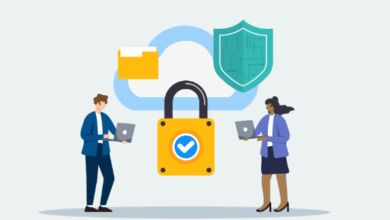What Documents Do You Need to Open a Business Account?

Opening a business bank account is one of the first key steps in setting up your company. It helps you manage finances, build credibility, track expenses, and stay compliant with tax and legal requirements. But before you can walk into a bank or submit an online application, you’ll need to gather the right documentation.
Whether you’re launching a side hustle, registering a new LLC, or expanding a growing operation, understanding the documents required to open a checking account for your business can save you time and prevent delays.
Why You Need a Business Bank Account
Keeping your business and personal finances separate isn’t just a good habit—it’s essential. A business account allows you to:
- Accept payments under your business name
- Track expenses and earnings for taxes
- Establish business credit
- Simplify payroll and vendor payments
- Maintain a professional image
Even sole proprietors benefit from having a dedicated business account, especially when it comes time to file taxes or apply for financing.
What You Need Before You Apply
The specific documents you’ll need can vary depending on your business structure and the financial institution you choose. However, there are some general requirements most banks will ask for. Getting these documents together before you start the application process will help things go smoothly.
1. Government-Issued Photo ID
All applicants need to verify their identity with a valid photo ID. This could be:
- A driver’s license
- A state-issued ID card
- A passport
If there are multiple owners or authorized signers, each person may need to provide their own identification.
2. Employer Identification Number (EIN)
Most businesses need an EIN from the IRS, which acts like a Social Security number for your business. It’s used for tax reporting and is often required to open a bank account.
You can apply for an EIN online through the IRS website at no cost. Some sole proprietors may be allowed to use their Social Security number instead, but many banks still prefer or require an EIN to create a business profile.
3. Business Formation Documents
These documents prove that your business is registered with your state and that you’re authorized to operate. They vary depending on your business type:
- Sole proprietorship: May require a business license or a fictitious name/DBA certificate if operating under a name other than your own
- Partnership: Partnership agreement and possibly a DBA registration
- LLC: Articles of Organization and possibly an operating agreement
- Corporation: Articles of Incorporation and corporate bylaws
These documents help the bank verify your business’s legal structure and confirm the individuals authorized to manage the account.
See also: The Role of IoT in Smart Homes and Cities
4. Ownership Agreements (If Applicable)
If your business has more than one owner, you may need to submit documentation that outlines ownership percentages, roles, and authorized account users. This could include:
- Operating agreements for LLCs
- Partnership agreements
- Shareholder agreements for corporations
These documents are especially important if multiple people will have access to the account.
5. Business License or Permits
In many industries, a business license or professional permit is required to operate legally. Banks may ask to see this documentation to confirm that your business complies with local or state regulations.
If your business operates in a regulated industry—such as food service, construction, or healthcare—this requirement is even more likely.
6. Doing Business As (DBA) Certificate
Suppose your company operates under a name that is different from your name or the name registered with the state. In that case, you’ll need a DBA certificate (also called a trade name or fictitious business name certificate).
This is a common requirement for sole proprietors and partnerships but can apply to LLCs and corporations if they use a secondary business name.
Additional Items Banks May Request
While the items listed above are standard, some banks may request further information based on internal policies or risk assessments.
These Could Include:
- A copy of your business plan
- Proof of physical business address (like a utility bill or lease agreement)
- Estimated monthly transaction volume
- Tax ID documentation from your state or local government
It’s a good idea to check with your preferred bank ahead of time to understand their full list of requirements.
Choosing the Right Business Account
Once you’ve gathered the necessary paperwork, the next step is deciding which type of account fits your business needs. Most businesses start with a checking account for your business, but there are often multiple options to consider.
Common Account Types:
- Basic Business Checking: Ideal for new or small businesses with limited transactions
- Interest-Bearing Accounts: Useful if you maintain a higher balance
- Business Savings Accounts: Great for building reserves or planning for taxes
- Merchant Services Accounts: For businesses that accept credit/debit card payments
Ensure you evaluate fees, minimum balances, transaction limits, online features, and integration with bookkeeping tools.
Can You Open a Business Account Online?
Many banks now offer online applications for business accounts, which can be more convenient than visiting a branch. However, even online applications typically require you to upload digital copies of the same documentation listed above.
Before applying online, scan or photograph your documents so they’re ready to submit. Check that everything is up-to-date and legible to avoid delays in the review process.
What to Do After Opening the Account
Once your checking account for your business is open, take a few simple steps to make the most of it:
- Order business checks and debit cards
- Set up online banking and mobile access
- Link your accounting software for automatic syncing
- Deposit startup capital into the account
- Start using it exclusively for all business transactions
Also, consider setting up separate accounts for taxes, savings, or payroll if needed. The more organized your finances are, the easier it becomes to grow and plan ahead.
Final Thoughts
Opening a business bank account might seem like just another administrative task, but it plays a central role in how your company operates. It keeps your finances clean, supports your business’s legal standing, and builds a strong foundation for the future.
By preparing the required documents ahead of time—like your EIN, articles of formation, licenses, and identification—you can avoid hiccups and open a checking account for your business quickly and efficiently.
Every business is different, so be sure to confirm requirements with your bank of choice. With the right account in place, you’ll be ready to manage your cash flow, track your expenses, and focus on what really matters: growing your business.




